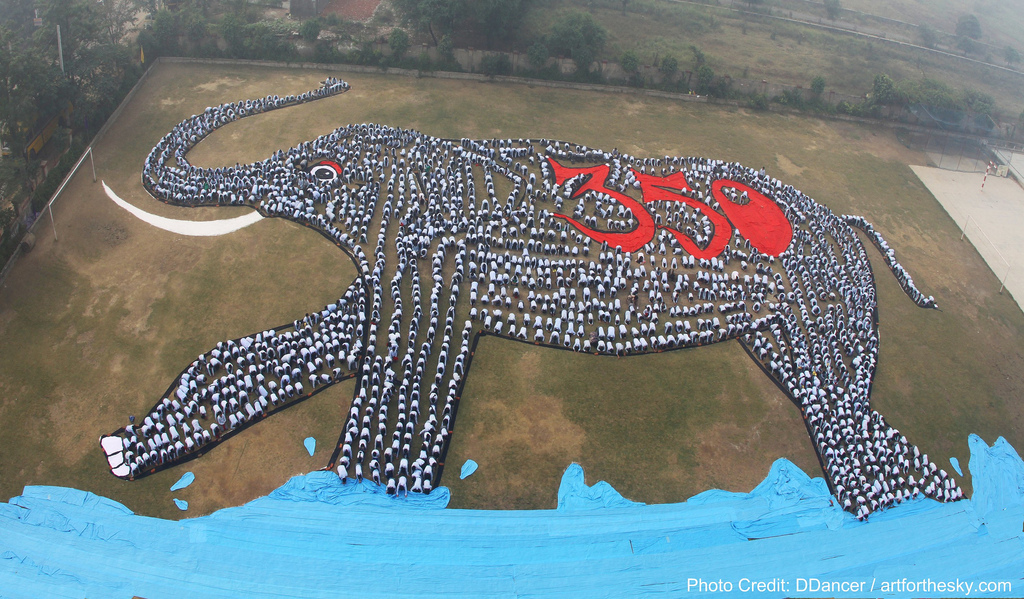
Bill McKibben has come up with a striking metaphor for the US stance in climate change negotiations. In a Huffington Post article he describes it as a tease – “it shows some leg, but it never ends up in your arms.”
Twice before US negotiators have persuaded the world into a watered-down agreement – the Kyoto pact and the Copenhagen accord – and in both cases the Senate didn’t come through – it didn’t ratify Kyoto, and it didn’t pass the climate legislation last summer. “All the watering down was for nought – you might as well have done the right thing.”
Now, says McKibben, we’re into Climate Tease Part III.
“This time the U.S. is demanding that the poor countries of the world stop thinking of themselves as poor. Before there can be any agreement on stopping deforestation, or on aid to help poor countries cope with climate change, Mr. Stern said last week, those nations have to agree to start cutting carbon more or less as if they were the U.S.”
It isn’t fair, but McKibben acknowledges that there’s a logic to it, in that the developing world’s emissions will need to be reined in like everyone’s if we’re to slow down climate change. It would make sense if the developed world sent them the aid that lets them move past coal.
“But since we’ve seen this movie twice already, we know how it ends. The rest of the world gives in, and then the Senate doesn’t come through with the money — indeed, just yesterday four GOP solons offered a preview of coming attractions. They sent a letter to Secretary of State Clinton demanding that she freeze the relatively small sum of climate aid we’d already pledged — less than $2 billion next year. They were, they said, opposed to the deal Obama struck last year which would ‘transfer billions of US taxpayer dollars to developing nations in the name of climate change’. In other words, even the small sums we’ve promised are unlikely to be forthcoming.”
Don’t be deceived, he says. Washington is “playing the world for suckers”. In conclusion he reiterates his consistent theme. “If we actually want to stop global warming, then we have to build a movement big enough to force change. Otherwise we’re suckers too.”
McKibben is no cynic. Although he can write light heartedly and with humour he’s very much in earnest. Indeed the idealism of the 350.org movement he co-founded is about as far from cynicism as you can get. “Our theory of change is simple: if an international grassroots movement holds our leaders accountable to the latest climate science, we can start the global transformation we so desperately need.” Their latest effort is an exhibition of art (an Indian one pictured) large enough to be seen from space.
Another humorous look at the intransigence of US lawmakers was provided by Thomas Friedman in his New York Times column a week ago. He imagined a Chinese WikiLeaker publishing a cable from the Chinese Embassy in Washington.
“Americans just had what they call an ‘election’. Best we could tell it involved one congressman trying to raise more money than the other (all from businesses they are supposed to be regulating) so he could tell bigger lies on TV more often about the other guy before the other guy could do it to him.”
Among the results:
“Most of the Republicans just elected to Congress do not believe what their scientists tell them about man-made climate change. America’s politicians are mostly lawyers — not engineers or scientists like ours — so they’ll just say crazy things about science and nobody calls them on it. It’s good. It means they will not support any bill to spur clean energy innovation, which is central to our next five-year plan.”
Friedman’s no cynic either, as is apparent from his climate change book Hot, Flat and Crowded. But like McKibben he’s exasperated by the seeming inability of the American political system, at least on the federal level, to even acknowledge the seriousness of the problem let alone address it. It’s certainly difficult to see the US leading us anywhere promising while they’re stuck with their current mix of legislators. Any meaningful agreements at Cancún, which Barry Coates’s latest blog considers possible, will still have to survive the bluster and bombast which substitute for science back home.
[The Fabs]



 ames Hansen was in China when the American midterm elections were held, and he reports that while the rest of us were feeling pessimistic he was becoming optimistic. Not because of what was happening in the US, but because of China. He found two reasons for optimism, the first of which he has explained in a
ames Hansen was in China when the American midterm elections were held, and he reports that while the rest of us were feeling pessimistic he was becoming optimistic. Not because of what was happening in the US, but because of China. He found two reasons for optimism, the first of which he has explained in a  One of Hot Topic’s favourite sceptics is NZ C”S”C member Roger Dewhurst, best known for turning up from time to time to unload links to the denier meme du jour (and for his carefully cultivated
One of Hot Topic’s favourite sceptics is NZ C”S”C member Roger Dewhurst, best known for turning up from time to time to unload links to the denier meme du jour (and for his carefully cultivated